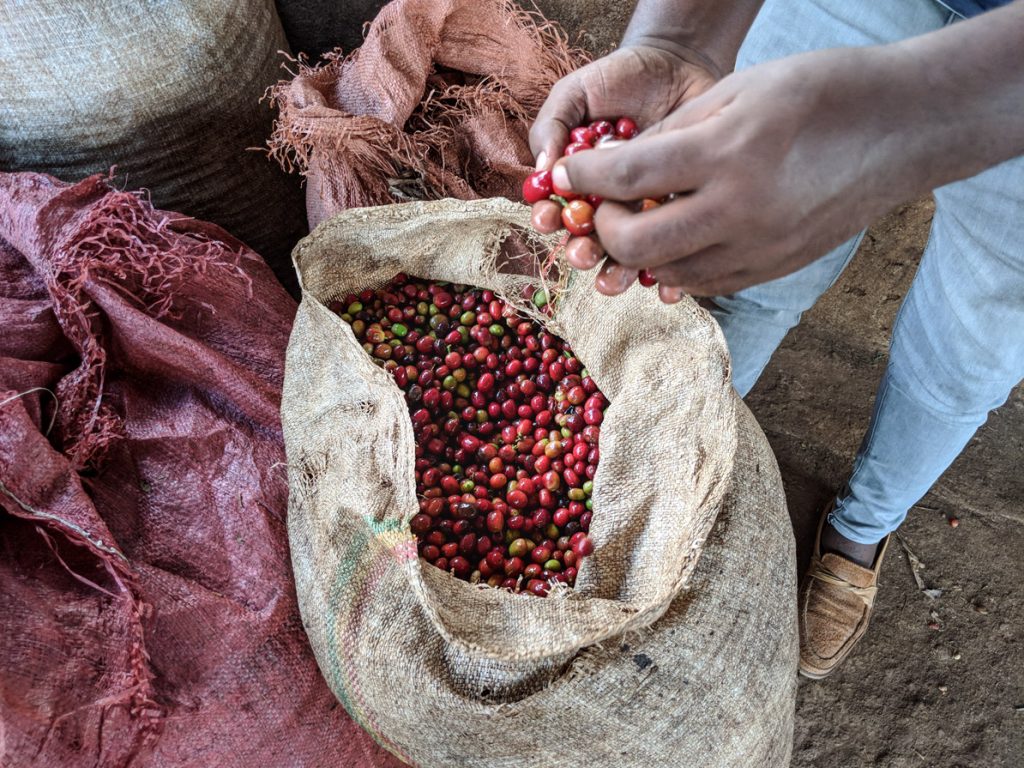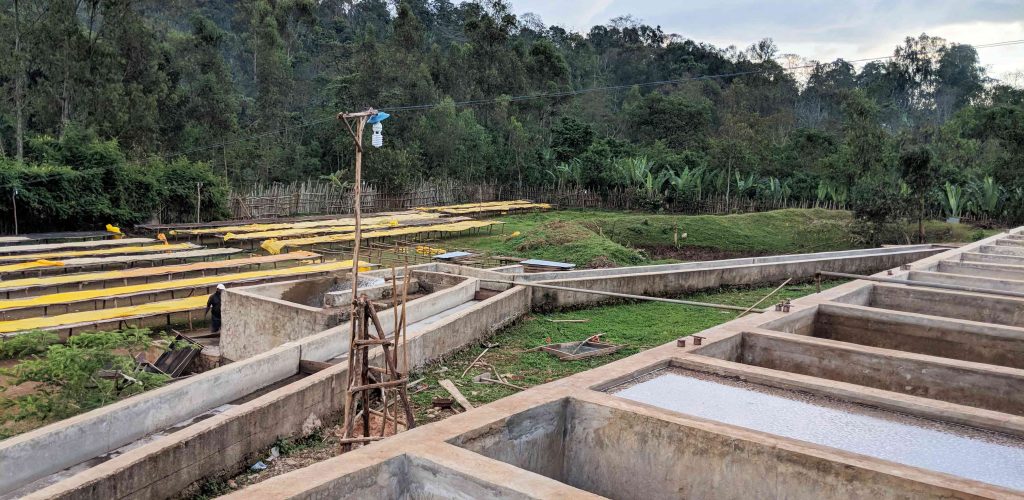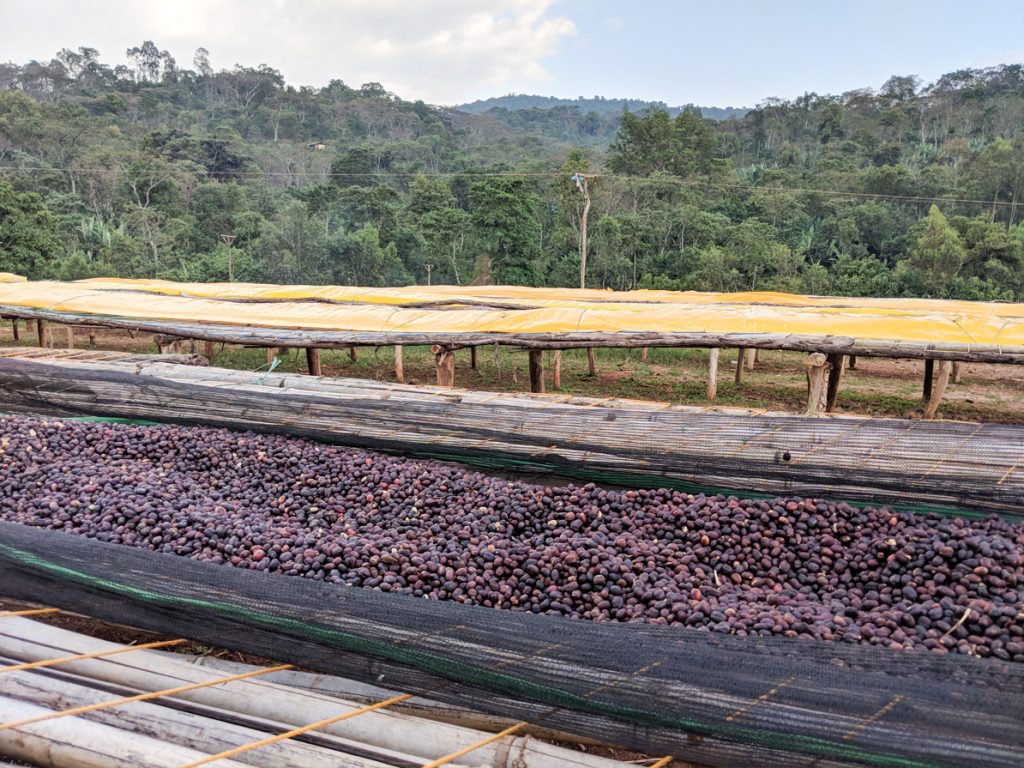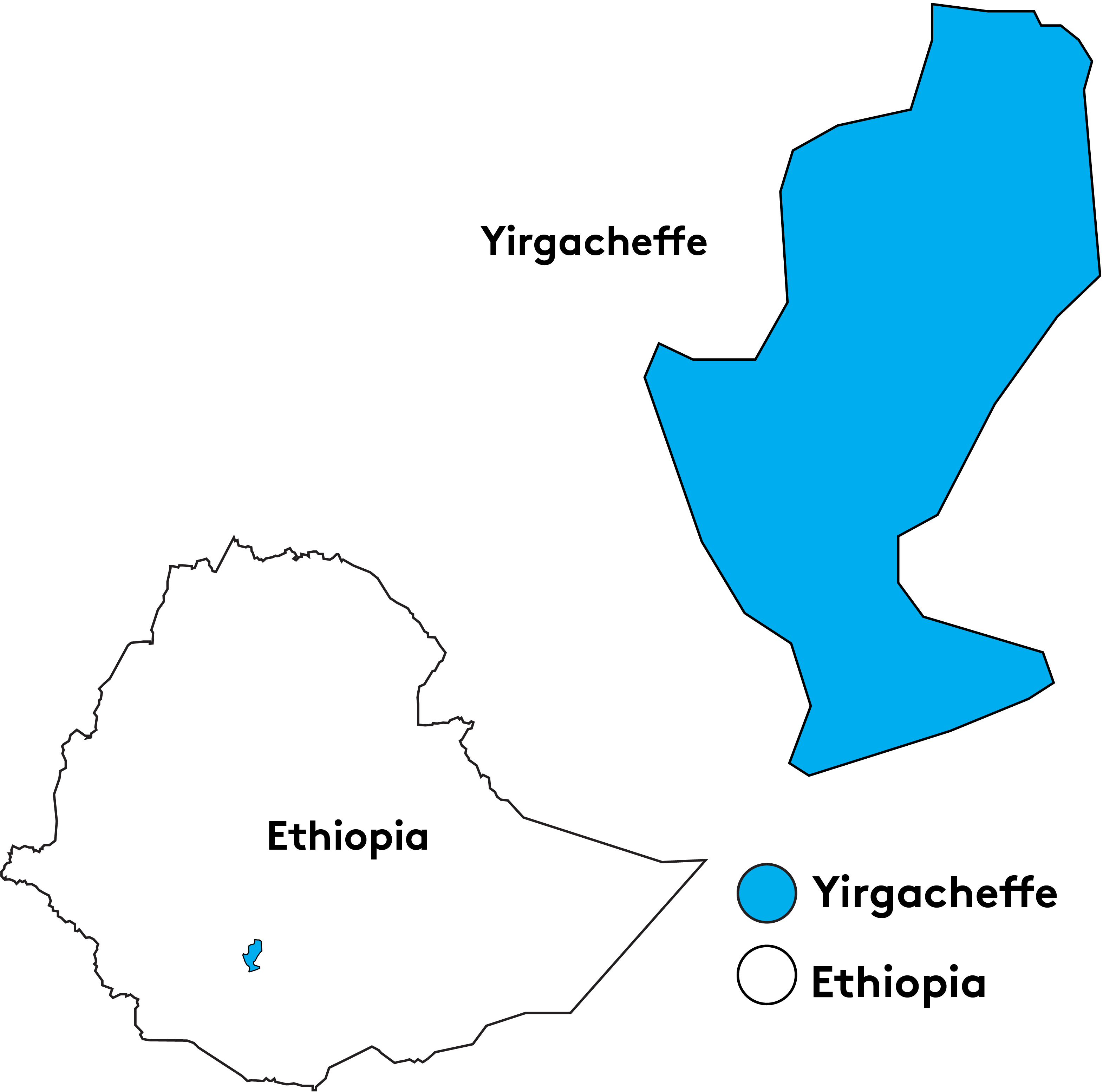Coffee Production in Yirgacheffe
Coffee grown in the many districts and kebeles of the Gedeo Zone is often referred to as Heirloom varieties, many of which were propagated and distributed to farmers in the last 40 years. Read more about common Ethiopian coffee varieties. Trees grow in red brown fertile soil under the shade of many tree species including Bibira, Cordia Africana, and the subsistence crop Ensete ventricosum.
In the southern region of Ethiopia, farmers pick coffee selectively, harvesting only ripe cherries individually by hand. Pickers rotate among the trees every eight to ten days, choosing only the cherries which are at peak ripeness.
Many pickers average approximately 100 to 200 pounds of coffee cherries a day, which will produce 20 to 40 pounds of coffee beans. Each worker’s daily haul is carefully weighed, and each picker is paid on the merit of his or her work. The day’s harvest is then transported to the processing plant.
Washing Station
In 2022, due to the high demand of the cup profile Koke Honey offers, we were able to expand our procurement to an additional washing station near the Koke kebele. We are proud to introduce the addition of the Birbes Kela washing station that delivers the same high quality and tasting notes as the Koke washing station. Both are located in the Yirgacheffe district of the Gedeo Zone.
This lot of Koke Honey was sourced from a total of around 1200 smallholder farmers from Birbes Kela, Koke, Konga, Wedessa, and Tisho kebeles bring their harvested cherries for processing at the Koke and Birbes Kele washing stations.
Ally has a long-standing relationship with the Koke washing station, which was built in 2011 and has seen many improvements since 2015, when the washing station staff began providing guidance to contributing producers regarding steps to increase coffee quality. We have been providing feedback to Koke and sourcing with them for more than five years, and we look forward to many more years of fruitful partnership.
The Birbes Kela washing station, located in the Birbes Kela kebele, is owned and operated by Semira Negash. The site was founded in 2020 and operates as a vertically integrated partner of Tracon, one of our exporting partners in Ethiopia. Shortly after opening her washing station, Semira quickly established herself as a producer of high-quality coffees with a strong placement in Ethiopia’s 2021 Cup of Excellence.
Honey Processing
Harvested cherries are fermented in-cherry for two days prior to being pulped. The pulped coffee is then dried on raised beds to its optimal humidity.
Dry Milling
Coffee is prepared for export at Tracon Trading’s coffee cleaning and storage plant on 30,000 sq meters of land in Addis Ababa. The plant is equipped with modern Pinhalense coffee processing machines and a Buhler Z+ color sorter. The machine has the capacity of processing six tons per hour. Beans pass through a final hand sort on conveyor belts. The plant’s six storage silos have a capacity of roughly 15,000 metric tons. The warehouses are clean, with ample lighting and ventilation, which are ideal for maintaining the quality of the coffee.
As the coffee industry continues to grow in Ethiopia, the country’s historic growing areas don’t always match up with the current-day maps defining Ethiopia’s geography. Our goal is to provide the clearest and most accurate information about the coffees that we offer, and we’re proud to provide the most specific location information we have for these coffees. Learn more about Ethiopia’s coffee growing regions on our blog.
Region: Southern Nations, Nationalities, and Peoples (SNNPR)
Zone: Gedeo
Woreda: Yirgacheffe
Kebele: Koke
ECX Growing Area: Yirgacheffe



